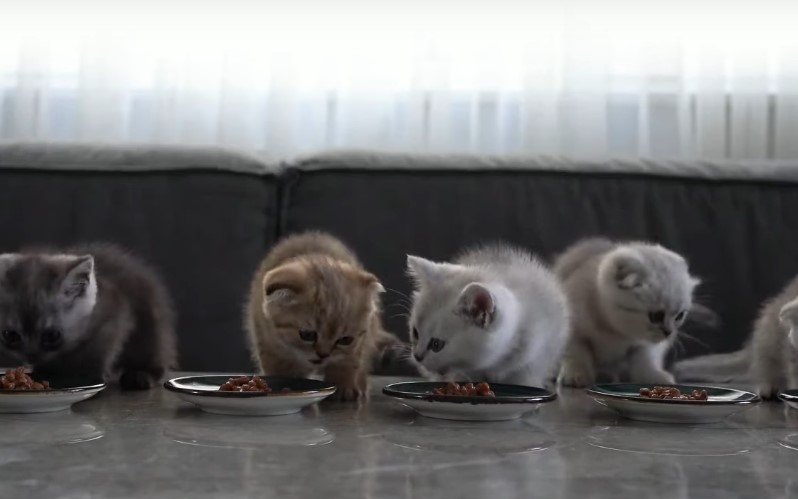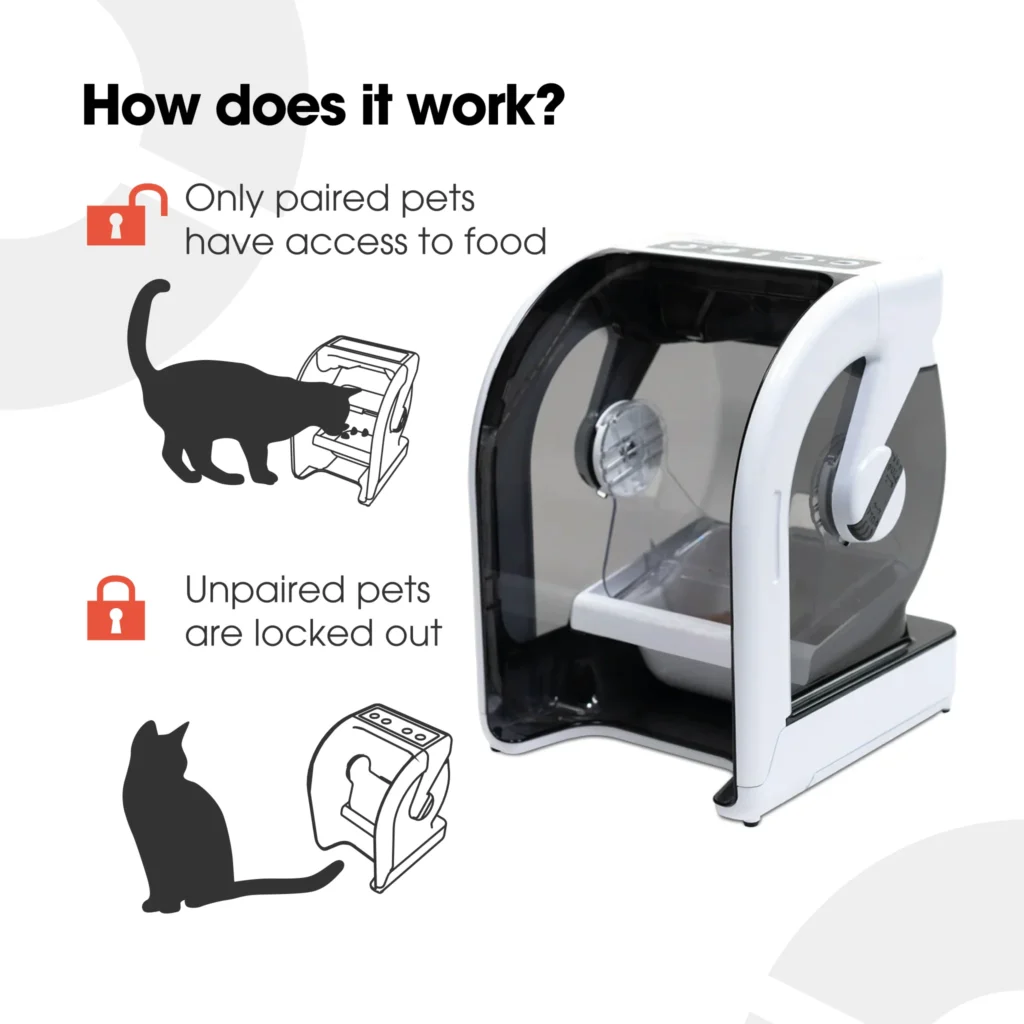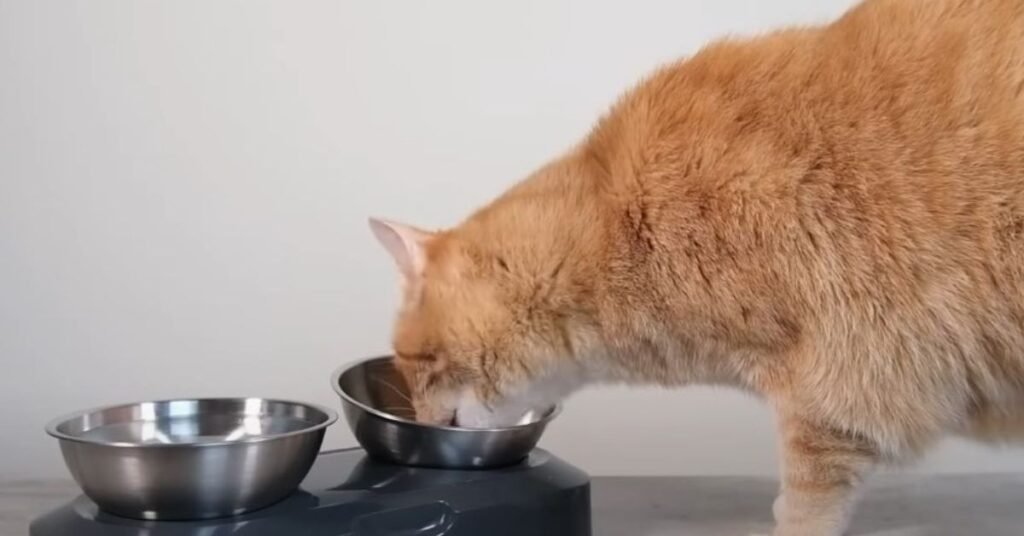
Many cat owners ask a question when they have both young and older cats at home: “Is senior cat food OK for younger cats?“
And the answer is, “No, senior cat food is not OK for younger cats.” Because it doesn’t meet their higher needs for calories, protein, and key nutrients.
Senior cat food is specifically formulated for older cats to meet their unique nutritional needs. It focuses on joint health, lower calorie content, and easier digestibility.
On the other hand, younger cats are still growing and need energy-rich food to stay healthy and strong. Feeding them senior food regularly can slow growth and weaken their bodies over time. AAFCO states kittens need at least 30% protein and 9% fat on a dry matter basis.
In this article, we’ll explain why young cats shouldn’t eat senior cat food, what you should feed them instead, how to choose the right food for every stage of your cat’s life, and why it’s always best to give age-appropriate food for proper development.
Is senior cat food OK for younger cats?
As I said before, young cats shouldn’t eat senior cat food regularly. While they can have it occasionally without immediate harm, it’s not good for their long-term health.
According to the Association of American Feed Control Officials (AAFCO), kitten food must meet higher nutritional requirements than adult or senior food.
Senior cat food is specifically made for older cats, with lower calories, less protein, and added nutrients for joint and kidney health, which significantly differ from younger cats’ food. Young cats require high levels of protein, fat, and calories to support their growth and energy needs.
Regularly feeding a young cat senior food can lead to developmental issues, nutritional deficiencies, and long-term health concerns.
Why Life-Stage Nutrition Matters
Cats go through three key life stages: kittenhood, adulthood, and senior years. Each stage comes with its own nutritional needs. Feeding the right food at the right time helps cats grow well, stay healthy, and age comfortably.
Poor nutrition at any stage can lead to long-term health issues. Obesity, kidney disease, and weak bones are often linked to diets that don’t match a cat’s age or body condition.
Stage 1: Growth Phase (Kittens – Birth to 12 Months)
Kittens grow faster than any other life stage. Their muscles, bones, brain, and immune system develop rapidly during this time.
- Energy Needs: Kittens need 2–2.5× more energy than adult cats.
- Protein: Around 30–35% crude protein (dry matter) supports tissue and muscle growth.
- Fat: 20–25% fat fuels energy, brain development, and healthy skin.
- Key Nutrients:
- DHA for brain and eye development
- Calcium and phosphorus for strong bones and teeth
- Taurine for heart and vision health
Kittens also require more frequent feeding—3 to 4 times daily—to meet their fast metabolism and smaller stomach capacity.
Stage 2: Maintenance Phase (Adults – 1 to 7 Years)
Once growth ends, adult cats need a balanced diet to maintain health and avoid weight gain.
- Energy Needs: Depend on lifestyle. Indoor cats need fewer calories; outdoor or active cats need more.
- Protein: Around 25–30% maintains lean muscle.
- Fat: 15–20% supports energy without overfeeding.
- Balanced nutrients support skin, coat, digestion, and immune function.
Obesity Alert:
Over 60% of adult indoor cats in the U.S. are overweight or obese. The main cause? Overfeeding or continuing high-calorie kitten food into adulthood.
Feeding adult cat food helps avoid obesity, diabetes, and arthritis during this stage.
Stage 3: Geriatric Phase (Seniors – 7+ Years)
As cats age, their metabolism slows, and their organs work harder. Older cats often experience reduced appetite, muscle loss, and digestive changes.
- Protein: 20–25%, but easily digestible to reduce kidney load
- Fat: Lower fat helps control weight but should remain moderate if the cat is underweight
- Calories: Seniors usually need fewer calories (around 150–200 kcal/day) unless underweight or ill
- Key Nutrients:
- Glucosamine and chondroitin for joint health
- Omega-3s for inflammation control
- Antioxidants to reduce cellular aging
- Extra fiber and digestive enzymes to support gut health
- Controlled phosphorus to support kidney function
Cats with conditions like chronic kidney disease or hyperthyroidism may need special therapeutic diets.
Nutritional Summary by Life Stage
| Life Stage | Protein (%) | Fat (%) | Calories/day | Key Nutrients |
|---|---|---|---|---|
| Kitten (0–12 mo) | 30–35 | 20–25 | 250–350+ | DHA, Calcium, Phosphorus, Taurine |
| Adult (1–7 yrs) | 25–30 | 15–20 | 200–250 | Balanced macros, taurine, fiber |
| Senior (7+ yrs) | 20–25 | 10–15 | 150–200 | Glucosamine, omega-3s, antioxidants, low phosphorus, extra fiber |

Risks of Feeding Senior Cat Food to Younger Cats:
- Nutritional Imbalance: Senior cat food is tailored for older cats and may lack the higher protein and fat content necessary for a young cat’s growth and energy needs. A 2023 vet study showed kittens fed senior food showed 20% lower weight gain over 8 weeks.
- Weight Management Issues: Lower calorie content in senior cat food may not meet the energy requirements of active younger cats, potentially leading to weight loss or stunted growth.
- Digestive Concerns: Ingredients in senior cat food designed for older digestive systems may not be suitable for younger cats, possibly causing gastrointestinal issues.
Best Practices for Feeding Young Cats
- Age-Appropriate Diet: Always choose food specifically labeled for kittens or young cats to meet their growth needs.
- Gradual Transition: Switch to adult food around 12 months, following a gradual process or vet advice.
“Always tailor your cat’s diet to its age, weight, and health — one size doesn’t fit all.” — Dr. Emily Carter, Feline Nutritionist
Always consult a vet before feeding senior cat food to young cats for medical or dietary reasons.
Can Senior Cats Eat Kitten Food?
No, senior cats shouldn’t eat kitten food as it is too calorie-dense and high in protein and fat, which can lead to weight gain and stress on aging organs like the kidneys.
Kitten Food vs. Senior Needs — What’s Too Much?
| Nutrient | Kitten Minimum (AAFCO Growth & Repro) | Senior/Adult Maintenance (AAFCO) | Kitten vs Senior Difference | Excess Risk for Seniors |
|---|---|---|---|---|
| Crude Protein | 30 % dry matter | 26 % dry matter | ≈4 pp higher | May strain kidneys in cats with reduced renal function |
| Crude Fat | Minimum 9 % (often 20–25 % in kitten diets) | Minimum 9 % | Up to ~15 pp higher in kitten food | Can lead to weight gain and pancreatitis risk |
| Calories (kcal/kg) | 2–2.5× resting energy—e.g. 300–400 kcal per 100 g | ~150–200 kcal/day total requirement | Kitten formulas can be 2× denser | Excess weight → diabetes, arthritis |
| Calcium/Phosphorus | Ca ≥1 %, P ≥0.8 % on dry matter | Balanced ratio—1:1 to 2:1; seniors require regulated amounts | Higher mineral load | May contribute to kidney/calcium imbalances |
| Omega‑3 DHA/EPA | Often added (~0.1–0.2 %) for development | Included in some senior foods, but not always | Slightly higher in kitten foods | Usually safe; excess beyond needs doesn’t harm |
Risks of Feeding Kitten Food to Senior Cats
- Excess Calories: Kitten food is high in calories, which can cause weight gain in less active senior cats. This increases the risk of diabetes, arthritis, and heart disease.
- Kidney Strain: The high protein in kitten food can stress the kidneys, especially in senior cats with kidney problems.
- Nutritional Imbalance: Kitten food lacks the nutrients needed for maintenance and joint health in senior cats.
When Can Kitten Food Benefit Senior Cats?
Kitten food can benefit senior cats in specific situations, primarily due to its higher calorie, protein, and fat content. Here are some scenarios where kitten food might be appropriate for senior cats:
- Weight Loss or Malnourishment: The high calories in kitten food can help a senior cat gain weight, build muscle, and improve appetite.
- Recovery from Illness: Nutrient-dense kitten food may aid recovery after illness or surgery. For example, in senior cats with hyperthyroidism, kitten food helped reverse unintended weight loss in 2–4 weeks, according to a 2022 study.
- Chronic Health Conditions: Some senior cats with chronic conditions like kidney disease or hyperthyroidism may struggle to maintain weight. Kitten food can help them gain weight.
Always consult a vet before feeding kitten food to senior cats.
FAQ:
1. Can Younger Cats Eat Senior Cat Food?
Yes, younger cats can occasionally eat senior cat food, but it’s not ideal for long-term use. Senior cat food has fewer calories and protein and more fiber, which might not meet the higher energy needs of a growing cat. Kittens and adult cats under seven years old need more energy and special nutrients that regular adult cat food provides.
2. What happens if a young cat eats senior cat food regularly?
If a young cat eats senior cat food often, it may not get enough protein, fat, and calories for proper growth. This can lead to slow development, weight loss, and nutrient deficiencies over time.
3. Can senior cat food harm a young cat’s health?
Senior cat food isn’t toxic, but it lacks the nutrients young cats need. Over time, it can cause weak muscles, low energy, and digestive issues due to its lower protein and calorie content.
4. Is it okay if my young cat eats senior food occasionally?
Yes, eating senior cat food once in a while won’t harm a young cat. However, it shouldn’t be a regular part of their diet because it doesn’t meet their nutritional needs.
5. What should I do if my young cat prefers senior cat food?
If your young cat prefers senior cat food, try mixing it with kitten or adult cat food to encourage proper nutrition. You can also choose high-quality, high-protein cat food to make their diet more appealing.
6. How can I feed both young and senior cats without sharing food?
Feed them in separate areas and at set times. You can also use microchip-activated feeders to ensure each cat gets the right food for their age and needs.

Final Thoughts
Senior cat food is not suitable for young cats as a regular diet. It doesn’t contain enough proteins, fats, and calories necessary to support their physical growth and development.
Feeding a young cat senior food regularly can result in nutritional deficiencies, poor growth, and other health issues. While occasional consumption may not cause harm, it’s best to stick to age-appropriate cat food to meet their nutritional needs.
For specific dietary concerns, consult a veterinarian to ensure your cat stays healthy.

